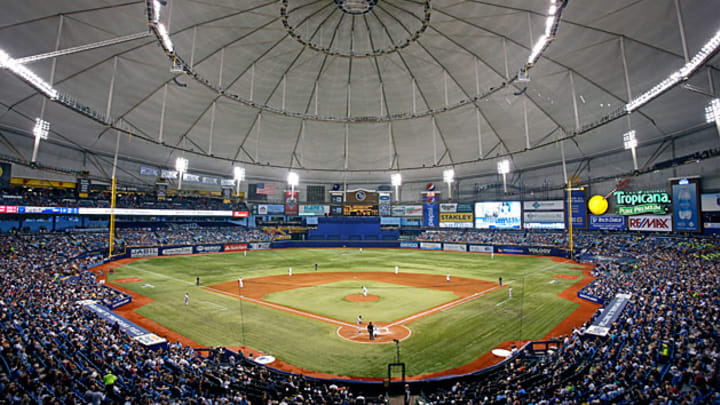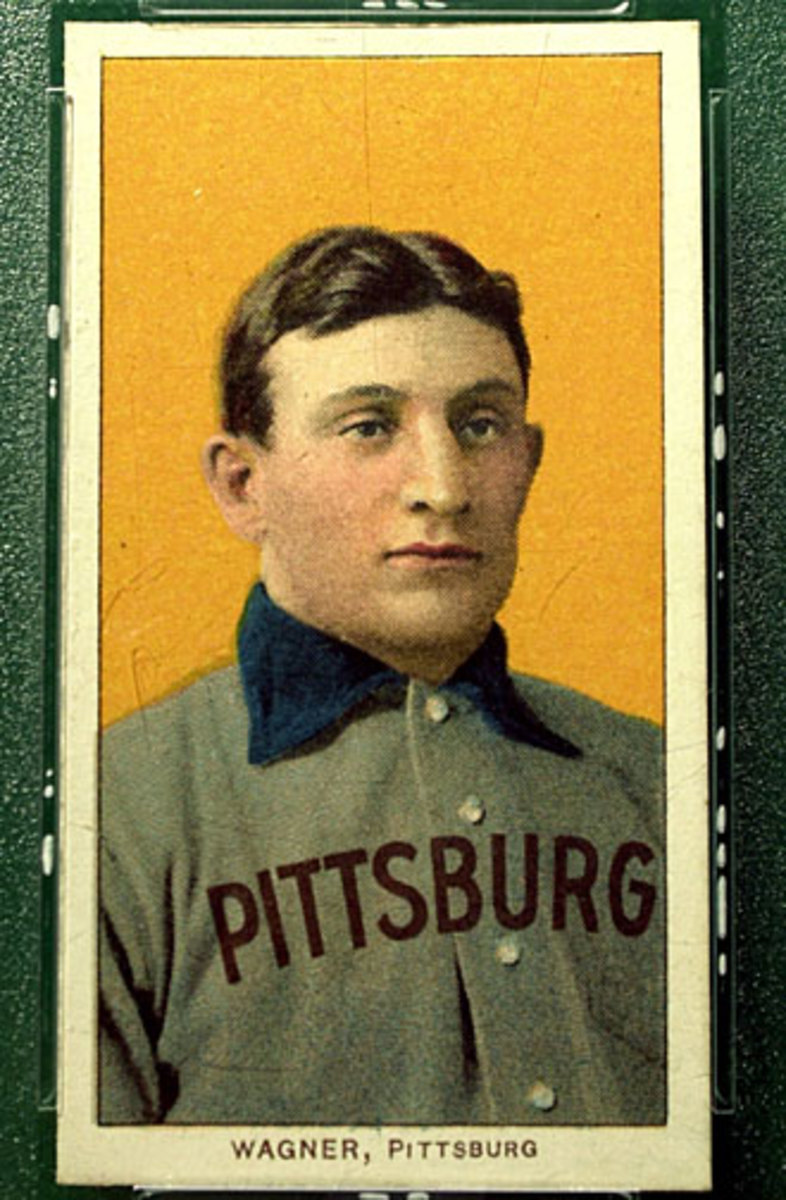Powerball: How to spend your massive lottery winnings, baseball-style

Face it: No matter how many $2 tickets you and your buddies band together to buy in advance of Wednesday night's Powerball drawing, you're not going to win the $1.5 billion jackpot. Financially, it makes roughly as much sense to bet your money on Santa Claus closing out the 2016 World Series for the Rockies as it does to try to beat the 1-in-292 million odds. Then again, most sports fans are dreamers by nature, willing to pull for the longest of longshots even in the face of incontrovertible evidence that this ain't their year.
So let's suppose you lay down your $2, your ship comes in and that $1.5 billion is all yours, because nobody else had the foresight to choose the same combination of numbers that you got by drinking a six-pack of Dogfish Head Brewery 120 Minute IPA (15-20 % ABV) while running a multivariate regression on Jeff Francoeur's PITCHf/x data (disclaimer: please don't try this at home, multivariate regressions are not safe). With your hard-earned cash, you want to buy your way into baseball somehow, and your newly commissioned army of accountants and tax lawyers has figured out how you're going to keep every penny of the $930 million cash payout, because—being one of those impulsive sorts who dropped $2 at 292-million-to-one in the first place—you're not going to choose the annual payouts that would force you to wait 30 years to collect every cent. Here's a sample of what you could buy.
1. Majority ownership of any one of 25 teams, or total ownership of any one of 14 teams with some walking-around money left over.
Via Forbes' 2015 estimates—which admittedly leave room to quibble—four teams were estimated to be worth at least $2 billion, namely the Yankees ($3.2 billion), Dodgers ($2.4 billion), Red Sox ($2.1 billion) and Giants ($2 billion), while a fifth, the Cubs ($1.8 billion), has probably risen enough in value to prevent you from reaching the 50% ownership mark with your wad of bills. That still leaves a handful of teams for which you can purchase a controlling interest, starting with the Cardinals ($1.4 billion), Mets ($1.35 billion), Angels ($1.3 billion), Nationals ($1.28 billion), Phillies ($1.25 billion), Rangers ($1.22 billion), Braves ($1.15 billion), Tigers ($1.125 billion), Mariners ($1.1 billion), Orioles ($1 billion) and White Sox ($975 million).
What's He Really Worth: Can Yoenis Cespedes get Heyward-sized deal?
Go lower than that and you can purchase the entire team outright. The next 10 teams in value are clustered in the $800-$900 million range; the four most affordable teams are the A's ($725 million), Royals ($700 million, a price that has certainly gone up with their World Series win), Marlins ($650 million) and Rays ($625 million). Owning one of those teams would allow you to put the rest of your money into payroll or ballpark improvements. On that note…
2. The Montreal Expos, Part Deux
You could plunk down enough cash to buy a controlling interest in the Rays and use the remaining money to bring Major League Baseball back to Montreal by building a new ballpark. A 2013 feasibility study estimated the cost of an open-air park in Montreal at $500 million, with another $150-$180 million for a retractable roof, a necessity in that climate. You'd probably have to get the city to kick in at least a bit of money toward Stade Tim Raines (or whatever you want to call it) to fit it into your budget, but this could be done. As a bonus, new SI contributor and Montreal native Jonah Keri—who happens to have written bestsellers about both the Rays and Expos—would buy you beers for life.

3. An all-ace rotation with a great closer
Let’s say that you came into a position of responsibility with a team without touching that $930 million. The quality of your Twitter-based roster suggestions impressed an owner so much that he hired you as general manager (of course, unless you ended up on a list like this, the odds of that happening are probably better than 292-million-to-one). You want to make good on this, and so you are willing to commit your winnings toward allowing your new team to have the best rotation money can buy.
That cash would allow you to afford the entire remaining contracts of David Price ($217 million), Zack Greinke ($206.5 million), Max Scherzer ($195 million, since one year and one installment of his signing bonus have been paid) and Clayton Kershaw ($163 million, with two seasons and the signing bonus already paid) and Jon Lester ($125 million, with one season and one signing bonus installment paid). That’s $906.5 million, and because Scherzer and Greinke both have deferred money in their deals, you can probably stretch the remaining $23.5 million in your budget to cover the $25 million for the final two years of Craig Kimbrel's contract, giving you an elite closer too. Just don’t come crying when one of those pitchers needs Tommy John surgery in a few years.
4. A dream outfield of Bryce Harper, Mike Trout and Giancarlo Stanton
What's He Really Worth: Why is Justin Upton's market not developing?
Suppose that position of responsibility comes with a team whose rotation is just fine and has most of its roster set. Instead of tapping into your talent base to acquire all of the aforementioned arms, you could take on the contracts of Stanton ($318.5 million remaining) and Trout ($134.25 million), leaving you $452.75 million to cover Harper's three remaining years of arbitration eligibility and a long-term deal. He's locked in with the Nationals at $5 million for 2016, and even if you figure he makes around $40 million for his final two years of club control, that's more than $400 million to put toward him at market rates. Tell me Harper and his agent, Scott Boras, would turn their noses up at an 11-year deal with an average of $37 million (total of $407 million) running through his age-36 season.
5. Every piece of baseball memorabilia you could want.

Assuming you don't need to fund your megalomaniacal dreams of purchasing a team or assembling a dream roster, you could make $930 million go a long way, even in the market of overpriced baseball memorabilia. Want a Babe Ruth jersey? The most one has ever sold for was $4.4 million in 2012. Put it in the cart. The bat with which the Bambino hit the first home run at Yankee Stadium in 1923 fetched $1.265 million back in 2010, while his 1918 contract with the Red Sox went for just over $1 million in 2014. The contract selling him from Boston to New York the following year sold for under a million bucks back in 2005. Those are just the four most expensive Ruth items ever sold, and even if they now cost twice what their buyers paid, that's still less than $16 million.
The most one of the famous T-206 Honus Wagner baseball cards from 1909 ever fetched was $2.8 million, to Diamondbacks managing general partner Ken Kendrick (which may help to explain that Greinke contract). A Wagner card sold for a mere $1.32 million last April. There were fewer than 200 such cards made; you could travel the country buying the remaining ones at $2 million a pop and still have enough money to live in luxury and buy a minor league team or three along the way.
Spread the generosity around by buying double seats from the Brooklyn Dodgers' beloved Ebbets Field at $4,750 per pair; assuming the supply holds out, you could give them as birthday gifts to 100 friends and still spend less than half a million bucks.
One more idea: Have replica plaques made of all 312 members of the Baseball Hall of Fame; they cost about $2,000 per, so that's just $624,000. Then build a replica Hall with the remaining cash—you can even stock it with some memorabilia that you purchase—and induct anybody you want. Anybody have Barry Bonds’ cell phone number?
